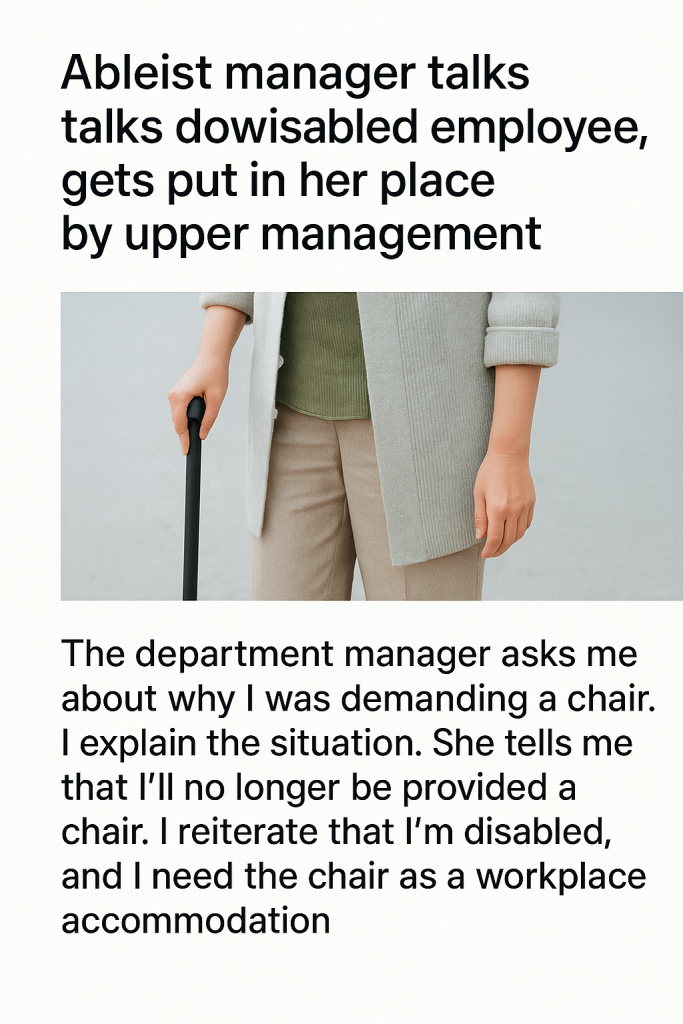In a recent workplace incident that has sparked conversations across social media platforms, a department manager’s ableist behavior toward a disabled employee was swiftly addressed by upper management, highlighting the growing emphasis on workplace inclusivity and respect.
The conflict reportedly began when the department manager questioned the disabled employee aggressively about her recent requests for accommodations, demanding explanations in a tone described by colleagues as condescending and dismissive. The manager’s remarks appeared to undermine the employee’s needs and contributions, reflecting a lack of understanding and sensitivity toward disability rights in the workplace.
Sources familiar with the situation say the employee, who has a documented disability, was subjected to repeated demands to justify her accommodation requests, which are protected under workplace disability policies. This exchange occurred during a routine check-in, but the manager’s interrogation quickly took on an ableist tone, implying that the employee was being difficult or trying to take unfair advantage of the system.
Witnesses report that the employee responded calmly, explaining the necessity and legitimacy of her accommodations. However, the situation escalated enough to prompt intervention from upper management, who reviewed the interaction shortly afterward. The higher-ups determined that the manager’s conduct violated company policy on respectful communication and nondiscrimination.
Upper management took swift action, issuing a formal reprimand to the department manager and mandating an inclusion and sensitivity training program. The company reaffirmed its commitment to supporting employees with disabilities and maintaining an environment free from discrimination or harassment.
This incident is not isolated in the broader context of workplace challenges for disabled employees, but it serves as an important example of accountability and corrective action. Advocates stress that while policies exist to protect disabled workers, enforcement and cultural change are essential to preventing ableist attitudes and behaviors.
Workplace experts note that when managers fail to respect accommodation requests and question the validity of disabilities, it contributes to an oppressive environment and can lead to decreased morale, productivity, and employee retention. Conversely, organizations that promote understanding and inclusion benefit from diverse perspectives and improved workforce engagement.
The affected employee reportedly expressed relief following the upper management’s intervention, appreciating the company’s acknowledgment of the issue and steps taken to prevent future occurrences. While the manager’s actions caused unnecessary stress, the resolution underscores a positive shift in corporate responsibility related to disability rights.
On social media, the story has resonated widely, sparking discussions about ableism in professional settings and the importance of properly addressing discriminatory behavior promptly and firmly. Many users called for similar responsiveness from companies worldwide and shared their own experiences of fighting ableism at work.
As workplaces continue to evolve, this episode serves as both a cautionary tale and a hopeful sign that discrimination can be challenged successfully when upper management holds all leaders accountable for fostering equitable and respectful environments.



